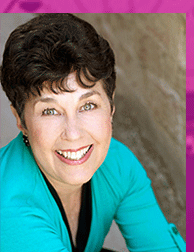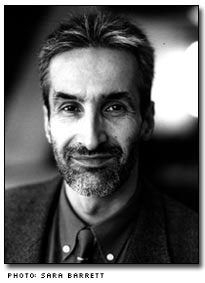When you interview people year after year, it’s easy to get into a rut. But what’s comfortable isn’t necessarily good, or effective.
I had such a revelation during a panel discussion on interviewing skills at the 2011 American Society of Journalists and Authors writer’s conference that took place in New York earlier this month.
 The interviewing panel featured long-time freelancer and celebrity profiler Beverly Gray and New York Times religion writer and Columbia University journalism professor Samuel Freedman.
The interviewing panel featured long-time freelancer and celebrity profiler Beverly Gray and New York Times religion writer and Columbia University journalism professor Samuel Freedman.
Here are some of the winning interview strategies that Gray and Freedman shared:
1. Establish your credentials. If you’re interviewing a celebrity or other public figure, be prepared to explain why you’re qualified to do the interview or write the story. That could mean sharing similar stories you’ve done before or high-profile publications you’ve written for, Gray says.
2. It’s OK to get personal in interviews, at least a little. Use icebreakers – last night’s baseball game, the weather, your hometown – to get subjects in the mood to talk.
3. If you use a recorder, put it in an inconspicuous place. If it’s not in their face, a source might forget it’s there and be more willing to open up.
4. Know the questions you want to ask, but don’t stick to an outline. Let the interview go where it wants to go. “It isn’t an interrogation, it’s an interview,” Freedman says.
5. Don’t be afraid to be quiet. Let the subject fill the silent spaces.
6. Bring props. If you’re doing historical research, bring clippings from old magazines or newspapers, a photograph or some other memorabilia – anything that could spark a source’s memory and get them talking.
7. Take notes. Even if you record interviews, back yourself up by taking notes. Recorders have been known to fail, and you might never get another shot with your interview subject. Rather than taking his notebook out immediately, Freedman says he waits until the source is comfortable, then makes flipping open his reporters’ notebook a natural part of the process.
8. Maintain a critical distance. It’s OK to empathize with a source, but it’s not OK to promise to be someone’s advocate. “Being a compassionate listener is different than saying you’ll carry their version of reality into the world,” Freedman says.
9. Don’t interrupt. Don’t be so stuck on getting to your next question that you cut a source off before they’ve had time to give a complete answer, even if it seems like they’re digressing. “You have no idea where they might lead,” Freedman says.
10. Don’t settle for generalities. Details are the stuff great stories are made of, so dig them out. People like to give short answers, and talk in adjectives, i.e., “It was nice.” “It’s your job to go back and gently persist and get the specifics,” Freedman says.
11. Prompt a reaction. It’s OK to throw out specific things for subjects to react to, e.g., “How did you feel when the old church was torn down?” or “What were you thinking when you walked off that bus?” Prompts can jog people’s memories or get them out of speaking in generalities, Freedman says.
12. An interview is never really over. Don’t be afraid to do a follow up visit or call or email asking for more information if what you have isn’t enough. Sometimes the best details don’t emerge until the second or third conversation you have with a source. In some stories Freedman’s worked on, he says he didn’t really figure out what the story was about until the second or third round of interviews. “Or a once-sentence comment could be the lead,” he says.

That last piece of advice -that an interview is never over – is a good one. I’ll keep that in mind. Thanks!
Wow!! What a nice blog..Your tips really help me a lot..
Two thumps up!!
My question is not directly related to interviewing per se, but I know you do a good deal of business reporting and writing so I figured you may know the answer. From my research I notice there is no consensus in terms of start and end dates for the various generations, especially once you get past Generation X.
As writers, where can we turn for ‘definitive’ (I’m using that term loosely) answers on cultural issues (like how to describe what generation an interview or feature subject is from) that aren’t really a matter of fact?
I don’t want readers to think I don’t know what I’m talking about if they have a different view on what defines, say Generation X. I’m very interested to know what you and your other readers think about issues like this where it is hard to find a consistent answer while doing background research. As always, thanks for the helpful tips you provide (I’m actually using one now to turn one interview into two articles!).
Shital